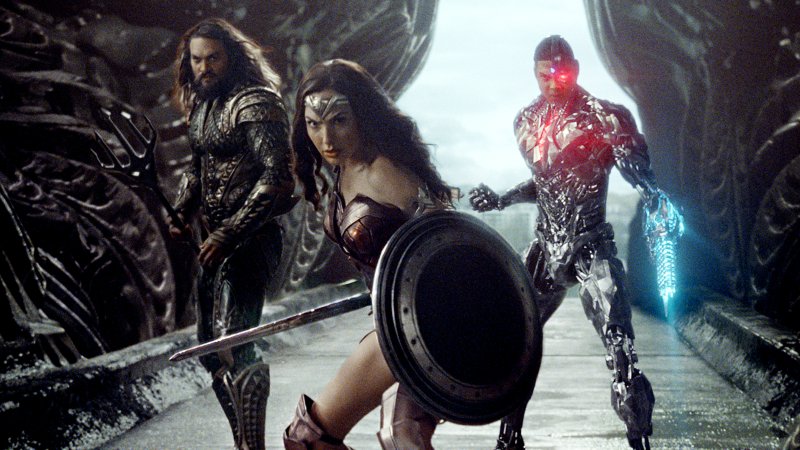Malnutrition Is Killing Nigeria's Children Because Of Food Shortage
International groups warn of a looming food crisis in parts of Nigeria due to civil conflict. Children are the most vulnerable in these conditions, but up to 9 million people could be affected.
LAKSHMI SINGH, HOST:
Turning now to West Africa. The United Nations is warning this week of what it calls catastrophic famine conditions in northeastern Nigeria. It threatens men, women and children who have already lost so much to an insurgency that has stretched seven years. The extremist group Boko Haram has killed thousands of people, displaced more than 2 million others. Relief workers fear children, especially those who are under the age of 5, are most at risk of dying from starvation.
NPR’s Ofeibea Quist-Arcton regularly reports from Nigeria and joins us now. Hello, Ofeibea.
OFEIBEA QUIST-ARCTON, BYLINE: Greetings.
SINGH: The situation for refugee kids affected by the fallout from Boko Haram violence in pockets of northeastern Nigeria – we know it’s serious, but could you give us a better idea of just how serious it has become?
QUIST-ARCTON: Well, children, of course, are the most vulnerable, as you have said, Lakshmi. But the U.N.’s Food and Agriculture Organization is predicting that this biggest humanitarian crisis in Africa country, in northeastern Nigeria will probably get worse because the lean food and farming season is coming up between June and August. So they’re talking about 120,000 people facing famine, 2 million in an emergency, and forecasting that 9 million people are in crisis in this region.
And aid agencies such as Medecins Sans Frontieres, Doctors Without Borders, that has been dealing with malnourished children says there is a whole slice of children, the under-5s, who are most at risk. They say they see their big brothers, their big sisters, but it seems that malnutrition is killing these young children. When I was in Nigeria I saw it for myself, pin-thin children being taken care of because there isn’t the food to feed them.
SINGH: It appears that a dispute between the Nigerian government and relief agencies, that has in some way hampered the humanitarian crisis.
QUIST-ARCTON: Well, last year there were allegations that government officials and even soldiers and some of those who are in charge of these refugee displaced people’s camp were stealing food aid which was meant for those who have been displaced by Boko Haram. And then in December, President Muhammadu Buhari accused United Nations agencies of – exaggerating, I think, was the word he used – Nigeria’s crisis when they were appealing to donors for about a billion dollars.
Then Kashim Shettima – and he’s the governor of Borno State, the northeastern state hardest hit by the violence – accused some aid agencies of using his state as, quote, “a cash cow.” The governor apologized to the U.N. last month. And he said his anger was directed at local NGOs he said had been aimed to defraud donors. But, you know, when the government and aid workers aren’t all pulling together it can mean bureaucratic hold-ups. And that’s why people say this has also affected an already catastrophic humanitarian crisis in northeastern Nigeria.
SINGH: So President Buhari was voted in just a couple of years ago, so I suspect there’s growing skepticism of his ability to handle all of these problems now facing northeastern Nigeria.
QUIST-ARCTON: Muhammadu Buhari is actually away from the country at the moment. He is in Britain. He has been receiving medical treatment. And just last week, he asked Parliament to extend his medical leave. So people want somebody strong at the helm. When President Muhammadu Buhari came to power almost two years ago now, he said he was going to vanquish Boko Haram, he was going to end corruption, he was going to make Nigeria a better place to live for all Nigerians. Many people will say that there has been some progress, but there have also been steps backward.
SINGH: That was NPR’s Africa correspondent, Ofeibea Quist-Arcton, speaking to us from Johannesburg. Ofeibea, thank you.
QUIST-ARCTON: Always a pleasure. Thank you.
Copyright © 2017 NPR. All rights reserved. Visit our website terms of use and permissions pages at www.npr.org for further information.
NPR transcripts are created on a rush deadline by Verb8tm, Inc., an NPR contractor, and produced using a proprietary transcription process developed with NPR. This text may not be in its final form and may be updated or revised in the future. Accuracy and availability may vary. The authoritative record of NPR’s programming is the audio record.










